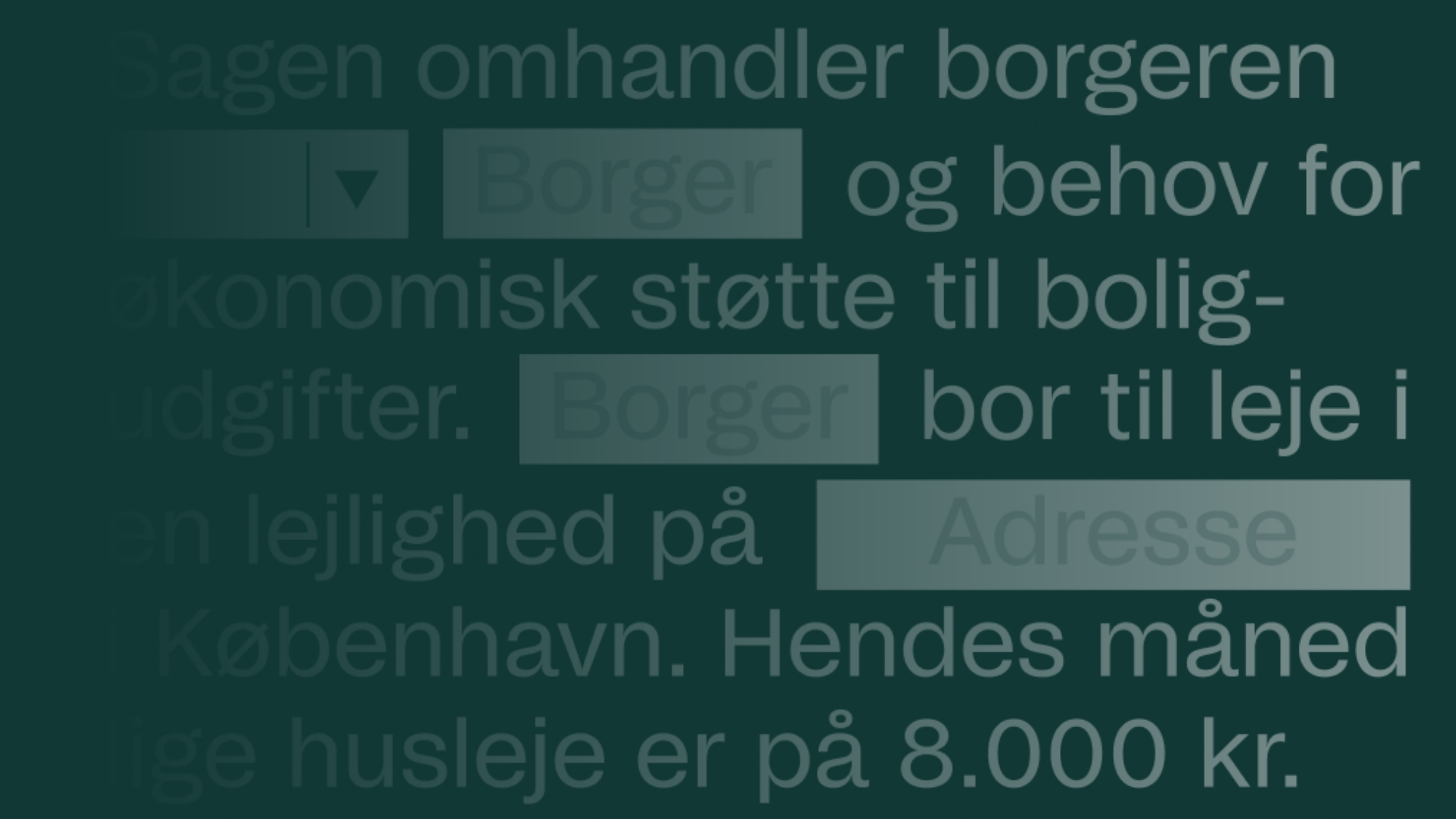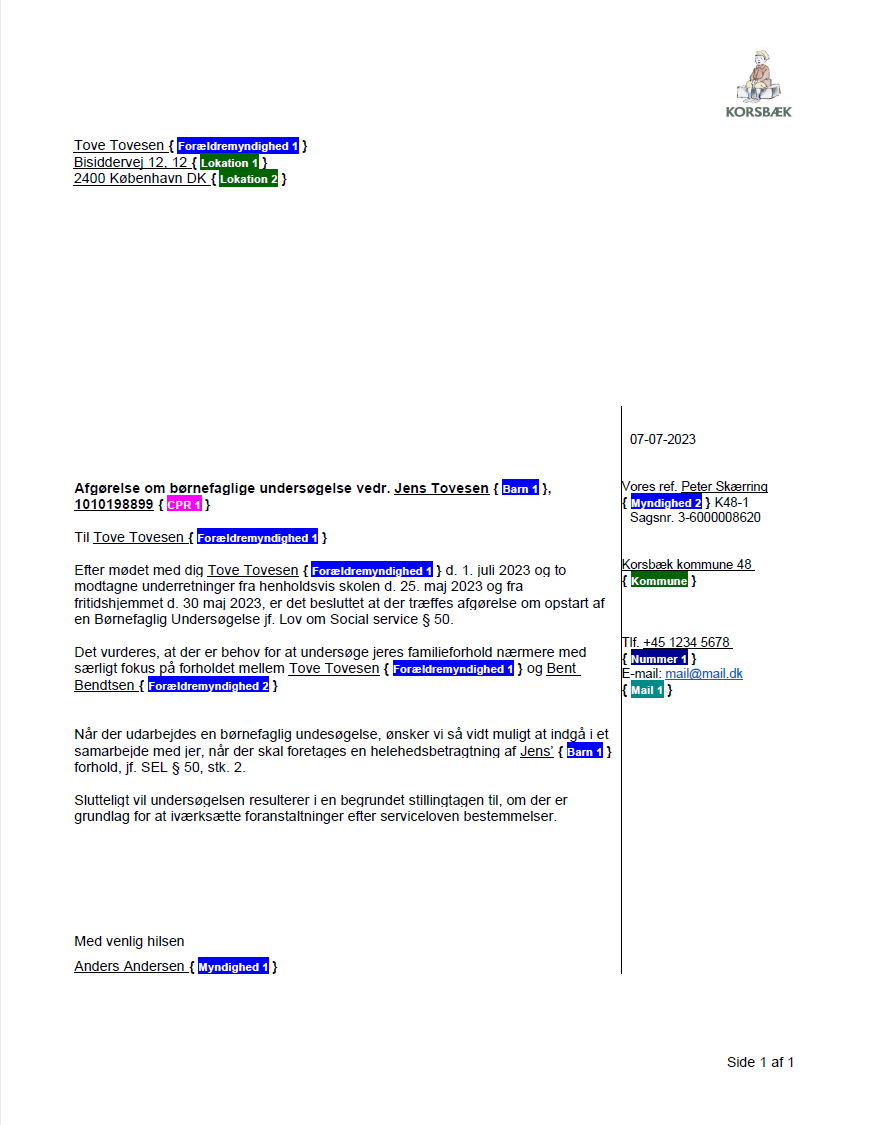The solution
Netcompany offers a digital solution that employs AI to replace the laborious manual method with automated anonymisation, overseen by human supervision. The tool is expected to markedly enhance quality, as well as improve the management of tasks and processes.
This solution can be easily adopted by any authority responsible for anonymisation tasks. In practical terms, the tool combines AI with human oversight. The AI model automatically identifies sensitive elements within sentences and substitutes them with pseudonyms such as ‘party,’ ‘case officer,’ ‘guardian,’ and ‘address’.
Each document is then fine-tuned and quality-checked by a case officer, who approves, modifies, or adds pseudonyms, whilst also making exceptions in the text where legally permitted. These adjustments help to continually improve the AI model.
All anonymisation tasks are displayed and updated within an easily navigable case management module.
A similar tool is already in use by the Judiciary Administration, achieving a 91% accuracy rate in identifying sensitive personal data that must be redacted before documents can be made public.



